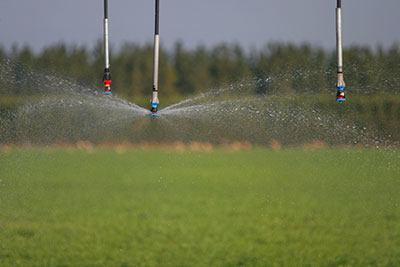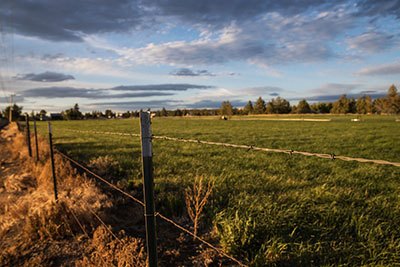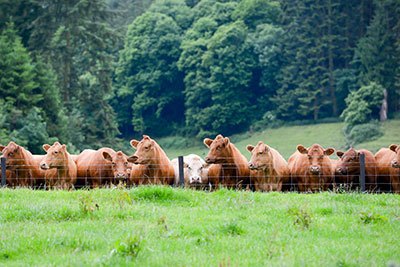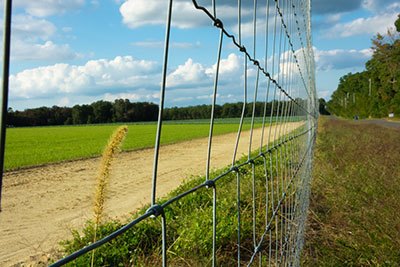As a farmer, you have to make many decisions – sometimes on the spot. One of them is whether or not you should spray your fenceline.
It’s a tricky question as there could be unexpected consequences on both sides: if you don’t spray, weeds may overrun your land, but if you do, there could be possible environmental hazards from the chemicals used.
To get tangible answers to this quandary, look no further. Our post today will walk you through all of the best advice for optimizing your fence line spraying process.
Take away key points:
- When spraying fencelines, take safety measures to keep yourself and the surroundings safe
- Do not use sprayers on windy days as the strong herbicide will hurt other species, grass, and plant types
- Ensure you know the exact use of the herbicide types to keep your oil optimal for crops and other plant species
Table of Contents
- Spraying fence lines: Should you or shouldn’t you?
- Is fence line spraying an effective way to kill weeds and keep pests away?
- Can fence line treatment control broadleaf weeds?
- Can spraying the fence line harm the environment?
- So, should I spray my fence against woody plants and other weeds?
- Best safety tips for spraying fences
- Pros & cons of spraying fence line
- FAQs
- Summary
Spraying fence lines: Should you or shouldn’t you?
If you need to know more about whether or not you should spray fence lines to kill weeds and keep the fence line optimal for more extended use, read our guide below.
We will discuss some pros and cons of fenceline spraying and alternatives for the best electric fence brush control.
Is fence line spraying an effective way to kill weeds and keep pests away?

Spraying fencelines is an effective way for eliminating weeds and keeping pests away. This method of weed control is fast, cost-effective, and can be used on a variety of surfaces including barbed wire fences.
It is important to use the right chemical when fenceline spraying, such as RoundUp® for electric fencing, as this will ensure that the weeds are killed effectively. Additionally, it is important to consider the environment when using herbicides and to use them responsibly.
When using non-selective herbicide treatments for fence line spraying, check for any multi-resistant weeds and other plants that may have built up over time. If these weeds growing types are present, then alternative methods of weed control should be considered.
These procedures include manual weeding or using non-selective herbicides like Glyphosate or Glufosinate which will kill both broadleaf and grass plants.
Overall, fence line spraying can be an effective way to kill weeds and keep pests away if done correctly. It is important to use the right chemical for your particular type of fencing and to consider any multi-resistant weeds that may have built up over time before proceeding with this method of weed control.
Can fence line treatment control broadleaf weeds?
Fence line treatment is an effective way to control broadleaf weeds. Southern Ag Amine 2,4-D Fence Line Weed Control is a highly effective herbicide for multiple species of broadleaf weeds and Brushtox contains triclopyr, a systemic herbicide that controls broadleaf weeds.
Professional weed killers can also be added to Roundup or glyphosate for long-term weed control. Correcting improper management practices to maintain a dense, vigorous turf is the best and most lasting method for broadleaf weed control.
The active ingredient in some products such as Iron HEDTA is bad news for broadleaf weeds but safe to use on grass. Southern Ag 2,4-D kills weeds that ruin the look of your hard-earned beautiful lawn.
Can spraying the fence line harm the environment?

Spraying fence rows is a popular way to maintain fences and effectively control weeds, and similar woody pants. But, it can have an impact on the environment if not done properly.
It is important to use herbicides that are safe for the environment and to follow all safety guidelines when applying them. Also, you must pay attention to avoiding the plant tissue of various types of vegetation and killing only weeds.
The concentrated formula destroys the plant’s leaves, especially after repeated applications. If you’re not careful enough, you will leave the bare ground without plants at all.
So, for the spray drift process, use a systemic herbicide and spray the great coverage of concentrated formula on roots, shrubs, and weeds brush to keep your pasture clean from grasses and unwanted vegetation. Additionally, it is important to be aware of any nearby water sources or wildlife habitats that you can affect with a separate sprayer and boomless nozzles.
When done correctly, fence line spraying can help keep weeds and other vegetation from encroaching on your property without causing harm to the environment.
However, it is essential to research the best methods for your particular pasture situation and take all necessary precautions before beginning any weed spraying project.
So, should I spray my fence against woody plants and other weeds?
Yes, you should spray your fence against the woods and pests, but take care of the surroundings. The weed chemicals and other herbicides used in the paint can be toxic to plants and animals, and can also contaminate soil and water sources.
Additionally, the overspray from the sprayer can drift away from the fence and onto nearby vegetation or into waterways. Therefore, it is important to take precautions when using a paint sprayer on your fence.
Make sure to use eco-friendly paint that is low in VOCs (volatile organic compounds). Wear protective clothing such as gloves, goggles, and a face mask while spraying weed vegetation to avoid any contact with the chemicals.
Be mindful of wind direction when spraying for the spot treatment so that overspray does not drift away from the fence onto other areas. Do not spray weed roots, shrubs brush, and other plant types or grasses on windy days.
Although the spraying process might be a time-consuming for your large pasture, you must pay attention so as not to affect different plant and pasture animal species habituating there. Finally, always clean up any spills or overspray immediately after use.
Overall, spraying your fence with a paint sprayer is an effective way to protect your soil from woody plants and other weeds. However, you must take proper precautions to ensure that no harm comes to the environment in the process.
Best safety tips for spraying fences
Spraying your fence is a great way to give it a fresh, new look. However, it’s important to take the necessary safety steps before you begin. Here are the best safety steps to spray your fence:
– Wear protective clothing such as long pants, closed-toe shoes, and goggles.
– Make sure you’re spraying in a well-ventilated area.
– Set up a drop cloth or tarp underneath the fence to catch any overspray or drips so as not to destroy the pasture soil for trees and other plants.
– Use a mask or respirator when weed spraying if you’re using oil-based paint or stain.
– Test out the weed sprayer on scrap wood before beginning on your fence to make sure it’s working properly and that you have the right settings for your project.
– Start at the top of the fence and work your way down in even strokes, overlapping each stroke slightly so that there are no missed spots or runs in the paint/stain finish.
– Clean up any spills immediately with soap and water and dispose of any leftover paint/stain according to local regulations.
Pros & cons of spraying fence line

There are both pros and cons to consider when deciding whether or not to use a sprayer on your fence line.
Pros
- Spraying fence lines eliminates the need for weed-eating, making lawn maintenance easier.
- It can also help protect against fire by keeping fuel sources away from the fence line.
- Herbicides used in spraying can be more effective than manual methods of weed control and broadleaf plants destroying your wanted plants.
Cons
- Herbicides used in spraying may harm other plants if they come into contact with the spray. The sprayer leaves the bare ground for your trees and plants, even though it kills weeds and broadleaf plants.
- Spraying is often more expensive than manual methods of weed control.
- Some weed herbicides may have negative environmental impacts if not used properly.
FAQs
What do you spray on fence lines?
You should spray non-selective herbicides on a fenceline. It will help you to chemically control weeds. Applying non-selective herbicides like Glyphosate or Glufosinate eliminates grasses, broadleaf plants, and similar weeds, especially during their growing season.
How do I keep my fence line clean?
There are several methods you can use to clear out overgrown brush and vines, such as a chainsaw, bulldozer, brush mower, or trimmer.
A shovel can also be used for small weeds and saplings. It’s best to selectively remove large trees with a chainsaw.
When you have a tractor with a PTO shaft, PTO-driven swing arm trimmers are working best on mostly level ground.
You may also want to consider hiring someone with the right tools and experience to help you clear out your fence line.
How do I keep grass from growing on my fence line?
One option is to install a weed barrier such as landscape fabric and then cover it with mulch or small rocks. This will block the grass from growing under the fence.
Another option is to cut a shallow trench with a spade around the fence line and fill it in with mulch or small rocks. You can also use vinyl strips along the bottom of the fence to prevent growth of grasses, brush, and other unwanted plant types.
Finally, if you have a brick fence, placing bricks around and under the fence can help keep grass away.
What kills trees in the fence line?
Trees in the fenceline can be killed by a variety of diseases and insects, as well as physical smothering from vines.
Common methods used to kill diseased trees include using chemicals such as liquid glyphosate at a concentration of 360 grams per liter (g/l), girthing tape or a set of calipers, an axe or slasher, and cut and spray techniques.
Other common tree killers include topping, excessive pruning, flush cutting, and root killers on the market containing glyphosate.
What can I spray on the fence line to kill grass?
One option is to spray it with a non-selective, post-emergent broadleaf herbicide. This type of herbicide will effectively kill the grass without harming other plants in the area.
However, it’s important to be aware that this isn’t the most eco-friendly option. Additionally, you can use solar power or smother the grass with mulch and paper material.
Can you spray liquid fence directly on plants?

Yes, you can spray Liquid Fence directly on plants. It should be applied liberally to plants and their perimeter during a dry period. The repellent works on scent, so deer and rabbits don’t have to take a bite to be repelled.
It is harmless to plants and animals when used and stored as directed. The ingredients are eco-friendly, biodegradable, and won’t harm kids, pets, plants, or wildlife.
Can you spray on the fence stain?
Yes, you can spray on fence stain. Before beginning, you’ll need to thoroughly clean the fence with a pressure washer to remove dirt and debris. Once the fence is clean, you can use a pump sprayer to apply the stain evenly. Make sure to remember that spraying a wood stain requires more coats than brushing or rolling it on.
Summary
Spraying your fenceline can be a great way to keep away pests and control weeds. Just make sure you take the appropriate steps to ensure the safety of those involved, including humans, animals, and the environment.
Be mindful of wind speed conditions before using any sprays, as these can disperse them further than expected and cause damage to undesired areas.

